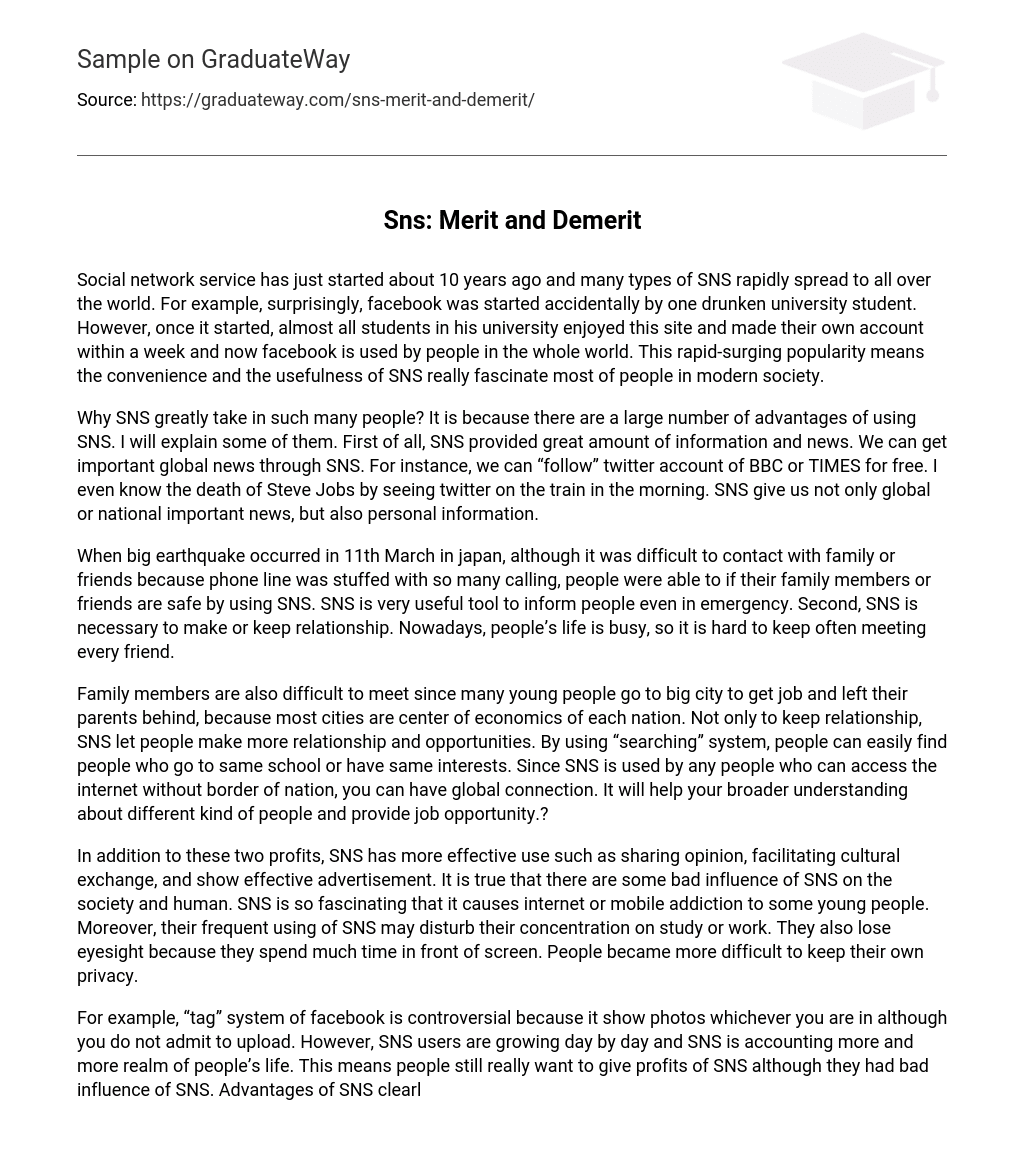Social networking services (SNS) became popular globally around ten years ago. For example, facebook, which began unintentionally by a university student under the influence of alcohol, quickly gained immense popularity among students in his university within a week. Nowadays, people worldwide use facebook, showcasing the convenience and usefulness of SNS that captivate individuals in today’s society.
Why are SNS so popular? The answer lies in the numerous advantages they offer. Allow me to elaborate on a few. Firstly, SNS platforms provide an abundance of information and news. Through SNS, we can access significant global news. For instance, we can freely “follow” Twitter accounts such as BBC or TIMES. I even learned about Steve Jobs’ death while scrolling through Twitter on my morning commute. SNS not only keep us updated on global and national news, but also provide personal information.
Amidst the Japan earthquake on March 11th, phone lines were overwhelmed, impeding communication. Yet, individuals discovered a means to utilize social networking sites (SNS) for verifying the well-being of their dear ones. SNS serves as a vital platform for information dissemination during times of crisis. Furthermore, in our hectic lifestyles, SNS plays a pivotal role in forming and sustaining connections since meeting friends regularly can prove challenging.
The migration of young people to urban areas in search of job opportunities has caused difficulties for families to stay connected. This is because most cities function as the economic hubs of their respective countries. However, social networking sites (SNS) have not only aided in maintaining relationships but also in establishing new connections and prospects. By utilizing the “searching” feature, individuals can easily locate others who attend the same educational institution or share similar interests. Furthermore, since SNS platforms are accessible to anyone with internet access, regardless of national boundaries, they provide a means for global connections. This wider network facilitates a better comprehension of diverse individuals and opens up avenues for employment opportunities.
SNS (social networking sites) not only offer the benefits of sharing opinions, facilitating cultural exchange, and displaying effective advertisements but also pose negative influences on society and individuals. The captivating nature of SNS can lead to internet or mobile addiction among young people. Additionally, frequent SNS use can disrupt their focus on studying or working, potentially leading to poor performance. Extended screen time can also negatively impact eyesight, while the loss of privacy becomes a growing concern.
Despite the controversy surrounding the use of the “tag” system on Facebook, which involves displaying photos without consent, the number of users on social networking sites (SNS) continues to grow daily. This signifies that SNS is becoming increasingly important in people’s lives and suggests that individuals still want to benefit from it despite any negative impacts. In conclusion, the advantages offered by SNS outweigh its disadvantages. With our world becoming more globalized and lifestyles changing, there is a greater need for connections. As a result, SNS is well-suited to meet these new human needs and has potential for further development.





